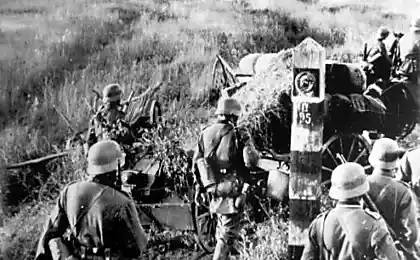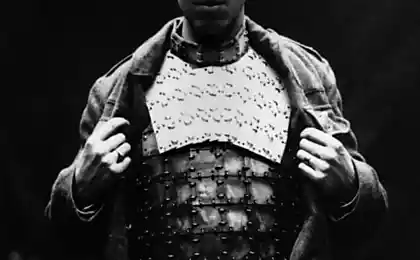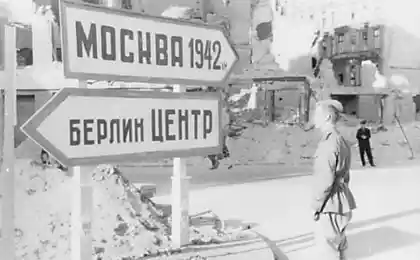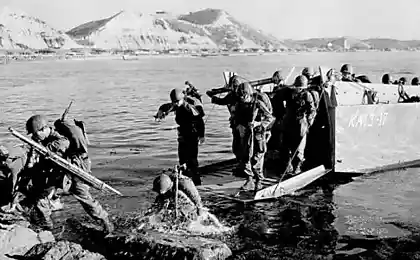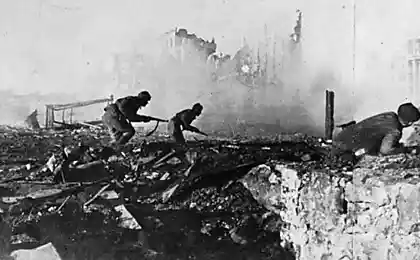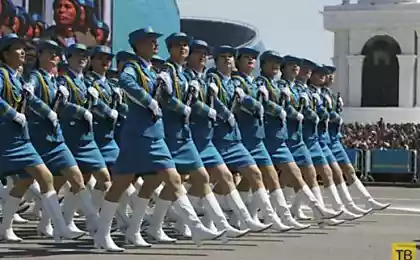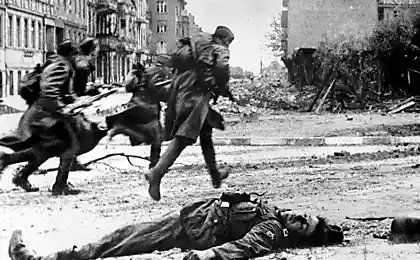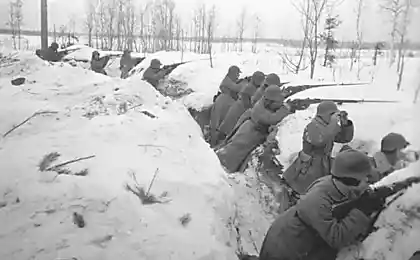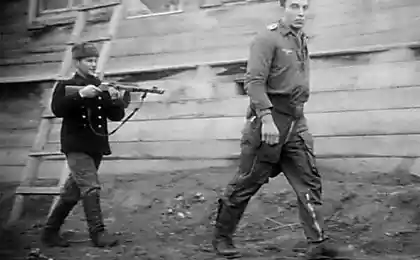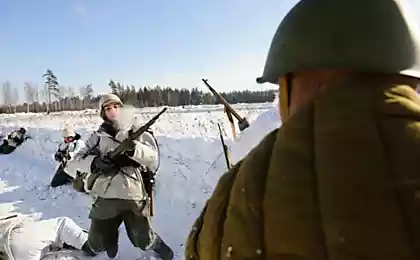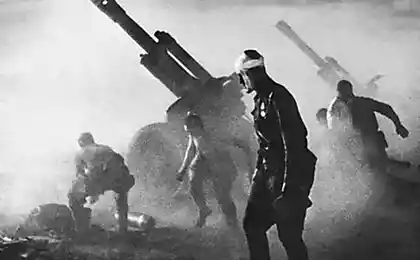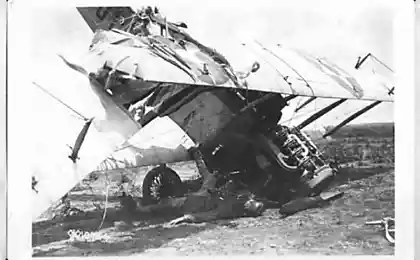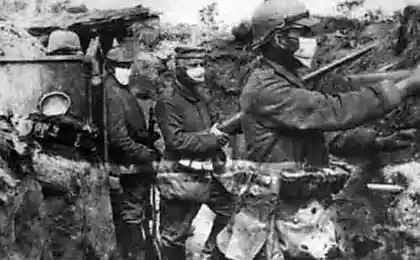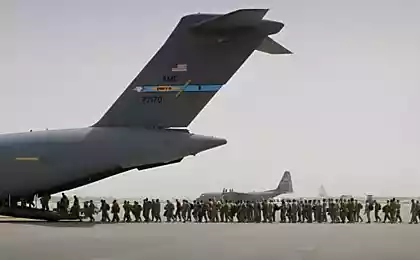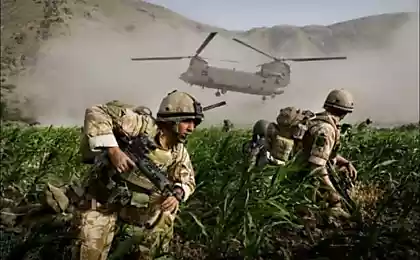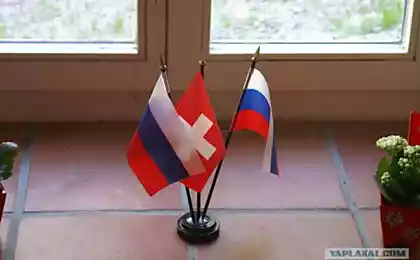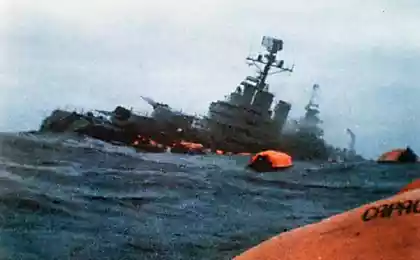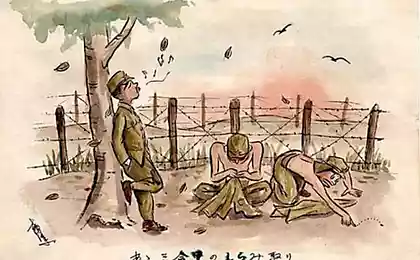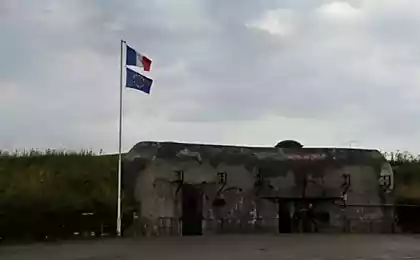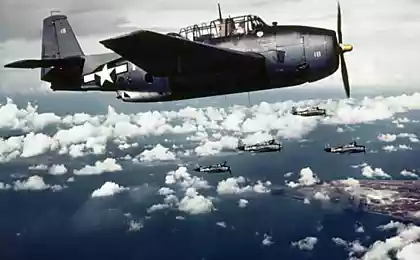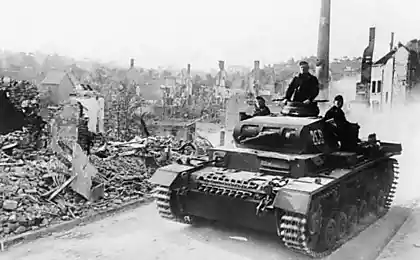856
Born soldiers - Gurkhas (9 photos)
Gurkhas (Gurkhas) (Eng. Gurkha) - British colonial troops, recruited from the Nepalese volunteers. Appeared in 1816. The Gurkhas took part in the suppression of the anti-colonial uprisings in India (Sikhs, and sepoys) and Afghanistan (1848). Also Gurkhas fought in World War I against the enemies of Great Britain in the Middle East and France. During the Second World War, Gurkhas fought in Africa, South East Asia and Italy. In 1982 Gurkhas took part in the Falklands conflict. The current strength of more than 2500 Gurkha soldiers and officers. The British royal regiments can get the young men under the age of 17 years. Minimum service life - 5 years. Gurkhas distinguished by strict discipline, courage and loyalty oath.
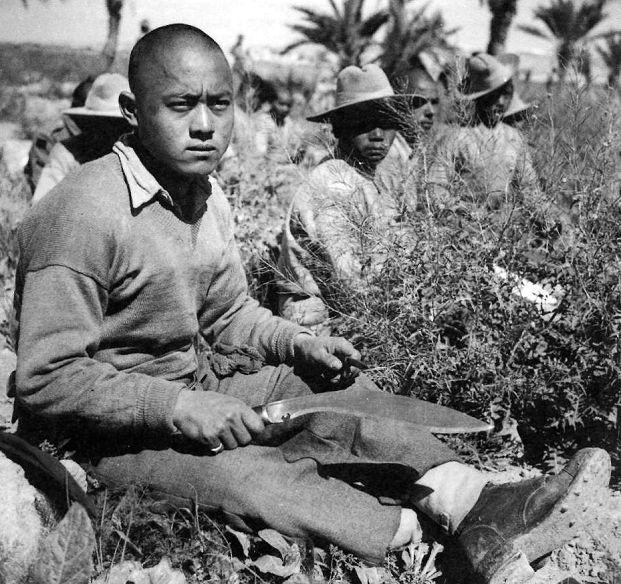
during comparatively recent Falklands War in 1982 the British magazine «Soldier» is not without treacherous intent published photographs depicting the Gurkhas, Tochal their khukri before the fight with Argentinean troops, which, coupled with artfully spread rumors very demoralizing unfortunate Argentines, bringing up the fact that those on sight upcoming Gurkhas, just throwing their arms and surrender.
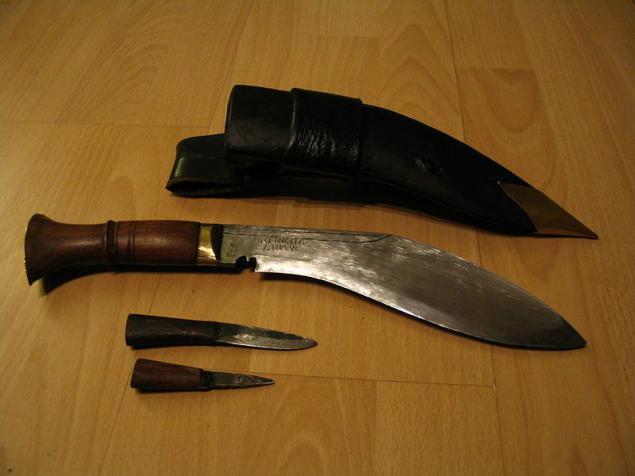
About 40 armed robbers stopped the train at night in the jungle of West Bengal and began robbing the passengers. In the train returning home demobilized soldiers Gurkha. He stood up for the girl who tried to rape and pulled out his combat knife kukri. Killed three and wounded eight, the rest fled

Since time immemorial, Gurkhas own particular martial art called "kukri". This is a whole set of techniques with the same name knife. With the help of Nepalese kukri mountaineers can instantly strike the enemy, causing him sharp and merciless blows. With such a Gurkha knife is not terrible and large animal.
Knife khukri - heavy, massive and very durable, and remarkably balanced, it can be used also as a throwing weapon. Each product goes through the caring hands of blacksmiths, because real khukri still made by hand-forged, so it's one of its kind, the product hand made. Dimensions khukri can be very different - from the marker to the sword blade. It can be successfully used not only for the brutal murder of opponents, but for entirely peaceful work as a convenient and reliable tool. Well, there's a pencil sharpened, garden weed, chopped cabbage ...
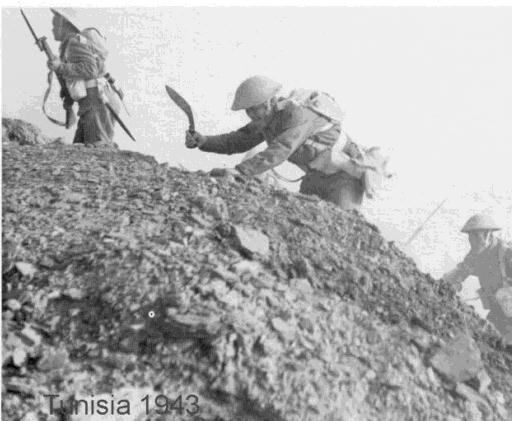
The coincidence of names combat knife and martial art is not accidental. There is hidden deep philosophical meaning. Its essence can be formulated as follows: if there is no serious reason to kill a man, you should not snatch the knife. Gurkha never will fight with fists or feet, he would rather flee than enter into a brawl. That is not gurkhski. It is beneath the dignity of the mountaineer. Be compared with someone forces in order to satisfy their own ambitions, and even worse, in order to resolve the dispute household - is the code of honor of the Nepalese soldier. But if seriously affected his dignity and the enemy is not going to repent, then the Gurkha exposes steel blade. And woe to the guilty. Punish those responsible, Gurkha boils with hate, has remained calm and did not regret what he had done. He went on the unwritten law of their ancestors.
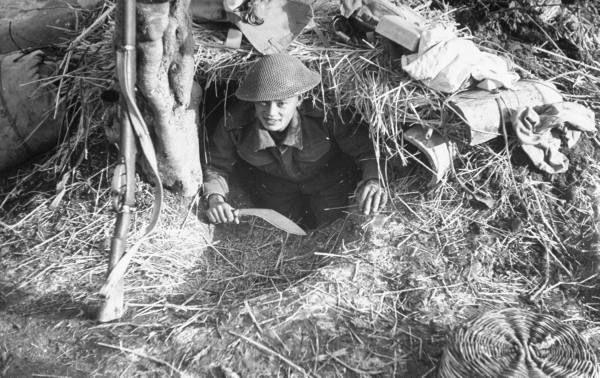
Gurkhas involved in many military campaigns of the British Empire, and gained fame faithful to his duty, disciplined, skilled fighters. Look, for example, said of them, Field Marshal Lord Slim, "The Lord has created Gurkhas as ideal infantry riflemen - brave, strong, patient, adaptable, skilled in disguise, to be proud of its military history, responsible commitment. Added to this is honesty in words and deeds, a perfect system, cheerful spirit. I have always had a lot of satisfaction from the service-Gurkha soldiers. "
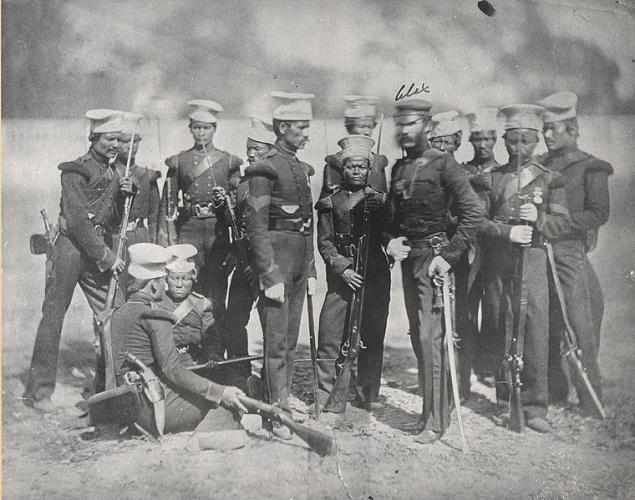
Natives of the highest mountains of the world and dense impenetrable jungle, Gurkhas have had a distinct advantage in the conduct of hostilities in such conditions. First World War was a serious test for gurkhskih shooters. And yet they excelled on the European plains. At the beginning of the Gurkhas who knew little, but after a series of fierce battles talking about them - the troops of the Entente - with delight, while their opponents - with fear.
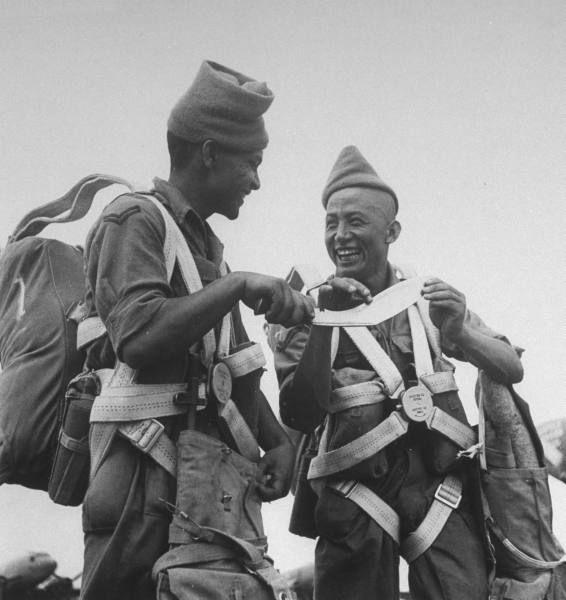
German infantrymen themselves considered to be one of the best soldiers of the Old World, spoke with horror that small (hard to get), dark (at night is not visible entities) Asian "barbarians" go on the offensive on guns, not even crouching, and despite the that many die never back. The concept of "attack bogged down" for them there. Surviving under enemy fire and burst into the enemy trenches cut all Gurkhas were there frightening curved knives - kukri.
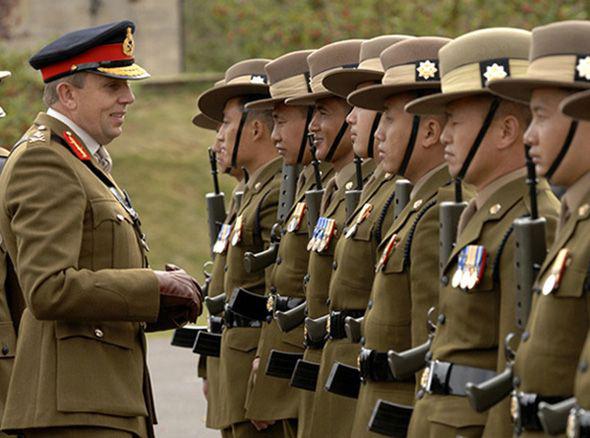
Another interesting stories from the life:
As part of the profits gurkhskuyu Aviation Officer to collect soldiers to assault. Referring to the order, he asked: "Who agrees to jump off the plane behind enemy lines - to come forward." Gurkhas wondered at what height will be flying. Not understanding why they need this information, the officer replied: "About three thousand feet." Then failure came about a third of the soldiers. "And this fearless Gurkhas - skeptical officer said. - The rest were frightened? "" If the plane was flying low, would agree to everything, "- he explained. It turned out simple-Gurkhas did not understand that they provide parachutes.
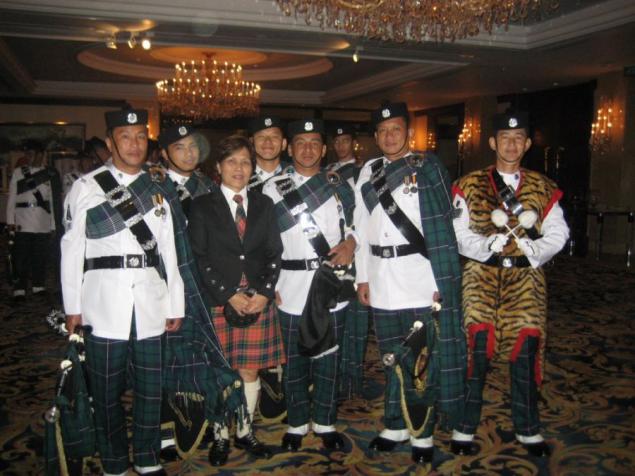
When the ambush the Japanese began to throw grenades Gurkha unit, they are not in the least embarrassed by this disastrous circumstance, time to catch these "gifts" of the enemy, and it is their deal. The Japanese in the battle were not so nimble rather did not expect anything like this and found literally killed by shrapnel grenades of their own.
- Three I could throw a grenade, but the fourth exploded in his hand, - he explained the old soldier showing crippled hand.
Here they are - Gurkhas ...

during comparatively recent Falklands War in 1982 the British magazine «Soldier» is not without treacherous intent published photographs depicting the Gurkhas, Tochal their khukri before the fight with Argentinean troops, which, coupled with artfully spread rumors very demoralizing unfortunate Argentines, bringing up the fact that those on sight upcoming Gurkhas, just throwing their arms and surrender.

About 40 armed robbers stopped the train at night in the jungle of West Bengal and began robbing the passengers. In the train returning home demobilized soldiers Gurkha. He stood up for the girl who tried to rape and pulled out his combat knife kukri. Killed three and wounded eight, the rest fled

Since time immemorial, Gurkhas own particular martial art called "kukri". This is a whole set of techniques with the same name knife. With the help of Nepalese kukri mountaineers can instantly strike the enemy, causing him sharp and merciless blows. With such a Gurkha knife is not terrible and large animal.
Knife khukri - heavy, massive and very durable, and remarkably balanced, it can be used also as a throwing weapon. Each product goes through the caring hands of blacksmiths, because real khukri still made by hand-forged, so it's one of its kind, the product hand made. Dimensions khukri can be very different - from the marker to the sword blade. It can be successfully used not only for the brutal murder of opponents, but for entirely peaceful work as a convenient and reliable tool. Well, there's a pencil sharpened, garden weed, chopped cabbage ...

The coincidence of names combat knife and martial art is not accidental. There is hidden deep philosophical meaning. Its essence can be formulated as follows: if there is no serious reason to kill a man, you should not snatch the knife. Gurkha never will fight with fists or feet, he would rather flee than enter into a brawl. That is not gurkhski. It is beneath the dignity of the mountaineer. Be compared with someone forces in order to satisfy their own ambitions, and even worse, in order to resolve the dispute household - is the code of honor of the Nepalese soldier. But if seriously affected his dignity and the enemy is not going to repent, then the Gurkha exposes steel blade. And woe to the guilty. Punish those responsible, Gurkha boils with hate, has remained calm and did not regret what he had done. He went on the unwritten law of their ancestors.

Gurkhas involved in many military campaigns of the British Empire, and gained fame faithful to his duty, disciplined, skilled fighters. Look, for example, said of them, Field Marshal Lord Slim, "The Lord has created Gurkhas as ideal infantry riflemen - brave, strong, patient, adaptable, skilled in disguise, to be proud of its military history, responsible commitment. Added to this is honesty in words and deeds, a perfect system, cheerful spirit. I have always had a lot of satisfaction from the service-Gurkha soldiers. "

Natives of the highest mountains of the world and dense impenetrable jungle, Gurkhas have had a distinct advantage in the conduct of hostilities in such conditions. First World War was a serious test for gurkhskih shooters. And yet they excelled on the European plains. At the beginning of the Gurkhas who knew little, but after a series of fierce battles talking about them - the troops of the Entente - with delight, while their opponents - with fear.

German infantrymen themselves considered to be one of the best soldiers of the Old World, spoke with horror that small (hard to get), dark (at night is not visible entities) Asian "barbarians" go on the offensive on guns, not even crouching, and despite the that many die never back. The concept of "attack bogged down" for them there. Surviving under enemy fire and burst into the enemy trenches cut all Gurkhas were there frightening curved knives - kukri.

Another interesting stories from the life:
As part of the profits gurkhskuyu Aviation Officer to collect soldiers to assault. Referring to the order, he asked: "Who agrees to jump off the plane behind enemy lines - to come forward." Gurkhas wondered at what height will be flying. Not understanding why they need this information, the officer replied: "About three thousand feet." Then failure came about a third of the soldiers. "And this fearless Gurkhas - skeptical officer said. - The rest were frightened? "" If the plane was flying low, would agree to everything, "- he explained. It turned out simple-Gurkhas did not understand that they provide parachutes.

When the ambush the Japanese began to throw grenades Gurkha unit, they are not in the least embarrassed by this disastrous circumstance, time to catch these "gifts" of the enemy, and it is their deal. The Japanese in the battle were not so nimble rather did not expect anything like this and found literally killed by shrapnel grenades of their own.
- Three I could throw a grenade, but the fourth exploded in his hand, - he explained the old soldier showing crippled hand.
Here they are - Gurkhas ...
